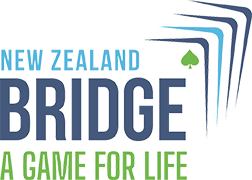
LAW 50E: Penalty card UI or not UI?
50E1 Clearly states that partners penalty card is authorised information (so not UI).
However my reading of 50E4 implies that if declarer waives the option of directing the lead from the opposite hand, then if the penalty card suit is lead and if the lead was clearly influenced by viewing the penalty card and is to the advantage of the defense, then director should rule as if UI applied!
There must be a sublety I am missing: Why do 50E1 & 50E4 appear to contradict each other?
Latest Posts on this Thread
- NICK WHITTEN10 Feb 2024 at 09:10PM
Hi Dave
You might have opened a can of worms
I thought I had this all sorted
but on reading your post and the two laws I have now become confused
My interpretation had always been:
When a player is on lead and partner has a major penalty card:and declarer does not apply any lead restriction:
He must lead the suit he would normally lead
but he may lead an "abnormal" card in that suit (making use of the knowledge partner must play the penalty card)For example partner has K as a major penalty card in a suit he bid
Obviously no quibbles about leading that suit
And It is Ok to lead a small card from Axx where normally the ace would be ledBut thats not what the lawbook says
I would appreciate it if a National Director could clarify this
cheers
Nick - Kathryn Shannon04 Mar 2024 at 07:46PM
Hi, I'm obviously not a National Director, however my understanding is that the OS cannott benefit from their infraction.
In Nick's example if partner makes an unusual lead the Director may adjust the score under law 16
The WBF commentary on the laws stare;
"TDs are reminded by Law 50E4 that they have to take away any gain the offenders might produce through a penalty card. In our example, if the defenders get four spade tricks through their infraction but without it would only score three, the TD adjusts the score. "http://www.worldbridge.org/wp-content/uploads/2019/01/2017LawsCommentary.pdf
Regards,
Kathryn - Dave Christian06 Mar 2024 at 04:42PM
Thank you Kathryn.
I have read the WBF commentary carefully. What I understand is that 50E4 is there to reinforce 50E2 & 50E3. So long as the penalty card is on the table, partner can lead any card - and can take advantage of their knowledge of the penalty card (after all decalarer has the opportunity to prevent that), but once the penalty card is played or returned to hand, knowledge of it is UI. The simple example of this would be if declarer prohibits the lead of the penalty card suit (penalty card is returned to hand); then subsequently partner plays in a manner that is influenced by knowledge of the penalty card to their teams benefit - director should award an adjusted score.
- NICK WHITTEN08 Mar 2024 at 08:50AM
These last two posts from Kathryn and Dave look pretty right to me.
Law 50E4 serves a similar purpose to Laws 27D (insufficient bid) and 23C (comparable call).
In all other cases (someone else might spot another example
 ) if the offenders appear to gain from their infraction after rectification there is no further adjustment (Law 10C4). Just bad luck for the non-offenders
) if the offenders appear to gain from their infraction after rectification there is no further adjustment (Law 10C4). Just bad luck for the non-offenders - Kathryn Shannon18 Mar 2024 at 08:07PM
HI Nick,
Please could you give an example of the offenders gaining after rectification?
Law 10C4 also refers us to 27 and 72C
Thanks,
Kathryn
- NICK WHITTEN21 Mar 2024 at 08:54AM
Hi Kathryn
This is tricky because there is a distinction between “assistance from the infraction” and just getting lucky.
An example of 72C would be West opens 3H
South pass out of turn holding a stack of hearts and wanting to double for penaltiesAuction reverts to North who passes as does East.
Law 10C4 says it is legal for South to double now and, not being comparable, North must passMission accomplished
But Law 72C kicks in here even if there is overwhelming evidence South didn’t infringe deliberately. The director would adjust maybe to replacing the double with pass (polling other players might help)
Compare this with South has Axx Axx Axx Q10xx and opens 1NT at RHO turn
RHO now bids 3C
South has no comparable call available and if he doubles North, who might have a weak hand (say just one king) with lots of spades, must pass.South “couldn’t have known” West had a 3C opening when he bid out of turn so the result stands. South just got lucky with3Cx down 2.
All this could be debatable so I would appreciate others views
Nick
- LANCE BOWDEN21 Mar 2024 at 09:32PM
Declarer knew the risk I think?
- Kathryn Shannon22 Mar 2024 at 05:10AM
Thanks Nick, that is a good , undestandable explanation.

Click here to log in.
